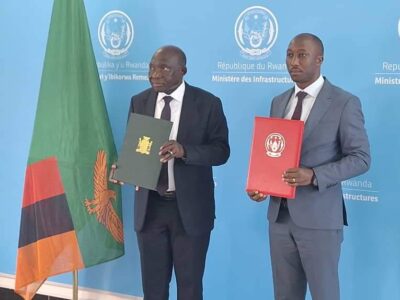Many African countries have been left nervous and unsure of G20 Common Framework following Zambia’s recent debt restructuring as it only covers bilateral creditors, indicating that the country still has more work to do.
This is according to the African Forum and Network on Debt and Development (AFRODAD) in a response to a press query by Executive Director Jason Braganza.
Zambia’s recent debt restructuring has left many countries nervous and unsure of G20 Common Framework as the agreement is only with bilateral creditors, excluding private and multilateral creditors not part of it,
Last month, Zambia and its government creditors, including China reached a deal to restructure US$6.3 billion in loans.
Following this agreement, Zambia will be paying its official creditors about US$750 million only over the next ten years, compared to about US$6.3 billion that was supposed to be re-paid in the same period, under the previous contractual arrangements.
Viewing the agreement at continental level, Braganza stated that while it was a relief after what has been a tough two years in getting to this stage, there would be some in government who were left feeling disappointed as the agreement was only with bilateral creditors, excluding private and multilateral creditors.
“This means there is still a lot of work to be done for the Government of Zambia, and a lot more pain to come for the people of Zambia,” Braganza said.
Read more: Zambia, Creditors finally reach debt treatment deal, paves way for $188 million IMF disbursement
This process, he said, had left many countries on the continent nervous and unsure of G20 Common Framework process, qualifying the reason why many countries had not signed up to it.
“Firstly, the protracted process in reaching an agreement creates uncertainty for governments and citizens and can lead to social unrest; secondly, the process is largely segmented with creditors playing against each other not wanting to take the ‘haircut’ losses associated with the debt restructuring, hence why in the case of Zambia, the deal is only half done.
“Thirdly, applying to G20 Common Framework has a direct impact on a countries credit rating. In most cases like Zambia, Ghana, Ethiopia, Sri Lanka, and Chad, have had their ratings downgraded after seeking relief from the Common Framework. This has discouraged countries who need the support e.g. Kenya, not to apply to it,” he said.
Braganza was hesitant whether other African countries would be quick to sign-up to the Common Framework unless they had no other choice.
Among the reasons he pointed out for this was the creditor landscape in Africa being very diverse.
He explained that there were cases where domestic debt was the bigger problem, while others, private creditors were the challenge, or other instances where multilateral institutions are the bottleneck.
“With such diversity, it is no wonder the Common Framework is not adequate nor does it give confidence to borrowers. Cases like Zambia, Malawi, and Chad are examples where the Common Framework has failed to deliver a comprehensive package.
“Second the debt relief is temporary given the package is designed to deal with creditors today while not addressing medium to long term development and revenue mobilisation. The revenue targets in the programmes are geared towards paying creditors not funding social services,” Braganza said.
Meanwhile, Centre for Trade Policy and Development (CTPD) Executive Director Isaac Mwaipopo, said Zambia’s debt restructuring agreement gave hope to other indebted African countries who wished to have their debt treated under the G20 Common Framework.
Mwaipopo however mentioned that it also gave an indication of the complexity of debt restructuring negotiations especially where countries debt portfolios remained large and diverse including various types of debt.
On lessons other countries could learn from Zambia, he said there were several of them.
“First of all, this development goes beyond demonstrating the feasibility of debt restructuring under the G20 Common Framework. It also emphasises the importance of responsible borrowing by African Governments to avoid unsustainable debt and ultimately defaults on debt repayments.
“This agreement inspires transparency, fair, and inclusive discussions as indebted countries engage their creditors. It also emphasizes the critical role of international cooperation in resolving global financial challenges,” he said.
WARNING! All rights reserved. This material, and other digital content on this website, may not be reproduced, published, broadcast, rewritten or redistributed in whole or in part without prior express permission from ZAMBIA MONITOR.












Comments